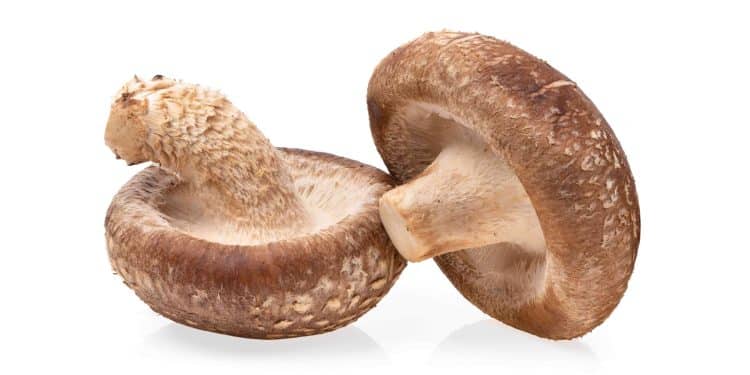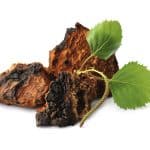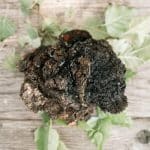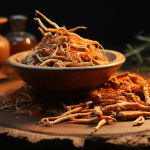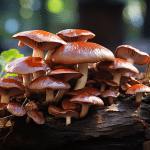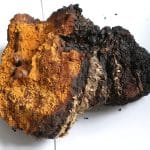Daily consumption of a unique fungus extract called AHCC was associated with markers of improved immune function and clearance of HPV (human papillomavirus) after six months of supplementation, according to a study published in the journal Frontiers in Oncology.
Does Shiitake Mushroom Mushroom Extract Have AHCC?
Yes, Shiitake mushroom extract does contain AHCC. AHCC is a unique, naturally cultivated extract that is extracted from the cell walls of Lentitula edode (shiitake) mushrooms, which are typically sold as food additives. It is high in alpha-glucans and other immune-modulating polysaccharides, and has been the subject of over 20 human clinical studies and more than 50 articles published in medical journals.
You can find our favorite supplements containing Shiitake Mushrooms on the following page of our website to learn more.
Best Shiitake Mushroom Supplement
Does Shiitake Mushroom Help with HPV?
Yes, shiitake mushroom has been shown to reduce the time of infection and negative side effects of HPV.
Nine of every 10 cases of HPV disappear by themselves in two years, according to the CDC, with no medical problems. But, when an HPV infection does not resolve, it can lead to health problems, like genital warts and cancer. According to the National Foundation of Infectious Diseases, HPV hits 80% of sexually active adults at least once during their lives.
The Phase II, double-blind, placebo-controlled randomized trial is led by researchers from the University of Texas at Houston, supported by a grant from the National Institutes of Health. It focused on women who had more than a two-year history of high-risk HPV that was ongoing, with 34 women who completed the full intervention. High-risk HPV is defined as an invisible infection that can be detected by only taking a tissue swab, and is a leading cause of six different types of cancer, the two most common being cervical and head-and-neck cancer.
Patients in the treatment arm received daily AHCC for six months, followed by six months on placebo. Patients in the placebo arm received placebo for a full year. The researchers confirmed that among those receiving AHCC daily treatments for six months followed by a placebo, 63.6 percent (14 out of 22) cleared their infections without any negative side effects. In the placebo arms, only two out of 19 patients were HPV-negative at the end of treatment, showing the substantial linkage to AHCC improving the outcome of those that received the AHCC treatment.
At the enrollment, mean levels of the immunomodulator known as IFN-beta were 60.5 +- 37.6 pg/mL, and suppressing IFN-beta to below 20 pg/mL was associated with increased T cells and IFN-y, as well as with sustained HPV clearance in women receiving supplementation, suggesting the potential site for the mechanisms of action. At the time of enrollment, the mean levels of an immune modulator known as IFN-beta were 60.5 +- 37.6 pg/ml, and suppression of IFN-beta to less than 20 pg/ml correlated with an increase in T lymphocytes and IFN-y, and durable clearance of HPV infections in women who received supplementation, indicating a possible area where the mechanism of action took place.
The results showed AHCC helped the majority of patients who were HPV-negative, thus decreasing their long-term risk for cancer related to HPV. Importantly, with the multiple studies, we showed that the AHCC supplement is safe and easily accessible, so patients could ask their doctors to use it to support their immune systems to clear persistent HPV infections.
Shiitake Mushroom Extract HPV Dosage
There is no ideal dosage of Shiitake mushroom specifically for the treatment of HPV, but if you follow the recommended dosage on most supplements, that should give you good baseline to follow.
The HPV Cancer Alliance
The HPV Cancer Alliance, envisions a world in which no one has to live with the destruction of HPV-related cancer. This pioneering study provides hope that HPV patients who are at high risk do not have to wait around and wait to see if their HPV turns into one of the six types of cancers. Instead, they can take proactive steps to support their bodies HPV-fighting abilities.
And since HPV at high risk is, in fact, an invisible virus, with little detectability methods, we all need to consider taking steps to naturally and effectively support our immune systems now, using real AHCC contained in Shiitake Mushrooms. This research has been supported by multiple medical researchers as the identification of potential steps to advance treatment strategies for HPV. The findings of this study are intriguing and represent a major step forward in the development of therapeutic strategies for eradicating high-risk HPV infections that persist.
While HPV vaccination is the best protection against high-risk HPV-associated cancer, we need therapeutic options for those patients who have ongoing high-risk HPV. After reviewing the studies, these findings are exciting, as there is no currently available therapy for asymptomatic high-risk HPV.
High-risk HPV infections typically lie dormant for years, until some other cofactor, such as higher stress on the body, immunosuppression, or poor nutrition, triggers the cancer pathways. While prevention of HPV infections through vaccination is ideal, having treatments for HPV that persist is a critical step to reduce the risk of developing cancer. This compelling work highlights the importance of patient experiences in gynecologic care. High-risk HPV is tremendously distressing to women. Detection leads to additional tests, procedures, and increased screening, all of which are designed to prevent the cancer.
Patients often ask about what they can do to help clear up the infection, and other than immunizations, we do not have much to offer.
Additional Resources:
